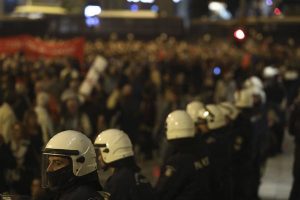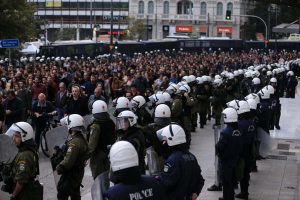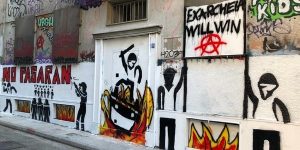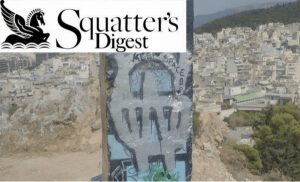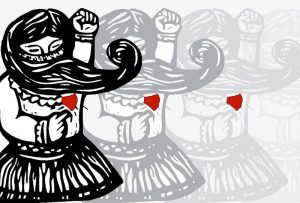 In coordination with the anarchist media collective Radio Fragmata, we present the following report from Greece about the ongoing efforts of the Greek government, along with business owners, police, and fascists, to take advantage of the COVID-19 pandemic to intensify repression—and the efforts of anarchists, migrants, prisoners, rebel workers, and others to fight back and open up spaces of freedom.
In coordination with the anarchist media collective Radio Fragmata, we present the following report from Greece about the ongoing efforts of the Greek government, along with business owners, police, and fascists, to take advantage of the COVID-19 pandemic to intensify repression—and the efforts of anarchists, migrants, prisoners, rebel workers, and others to fight back and open up spaces of freedom.
These updates are adapted from Radio Fragmata’s monthly contribution to the “Bad News Report” podcast about the current situation in Greece. We hope to spread awareness about this situation and to bring more listeners to the podcast itself; we recommend the “Bad News” report and the Anarchist/Anti-Authoritarian Radio Network as a whole. [Read More]
